Filter by
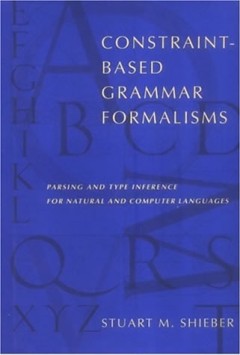
Constraint-Based Grammar Formalisms: Parsing and Type Inference for Natural a…
Constraint-Based Grammar Formalisms provides the first rigorous mathematical and computational basis for this important area. Constraint-based theories of grammar and grammar formalisms are becoming an increasingly widespread area of research in computational linguistics. Constraint-Based Grammar Formalisms provides the first rigorous mathematical and computational basis for this important area…
- Edition
- -
- ISBN/ISSN
- 9780262283519
- Collation
- 1 online resource (xi, 183 pages) :illustrations
- Series Title
- -
- Call Number
- -

Context and Consciousness: Activity Theory and Human-Computer Interaction
Intended for designers and researchers, Context and Consciousness brings together 13 contributions that apply activity theory to problems of human-computer interaction. Understanding how people actually use computers in their everyday lives is essential to good design and evaluation. This insight necessitates a move out of the laboratory and into the field. The research described in Context and…
- Edition
- -
- ISBN/ISSN
- 9780262280419
- Collation
- 1 online resource (xiii, 400 pages) :illustrations
- Series Title
- -
- Call Number
- -
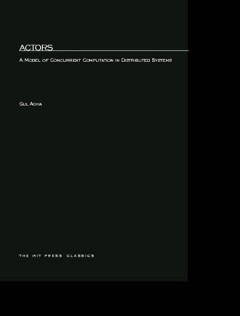
Actors :a model of concurrent computation in distributed systems
The transition from sequential to parallel computation is an area of critical concern in today's computer technology, particularly in architecture, programming languages, systems, and artificial intelligence. This book addresses central issues in concurrency, and by producing both a syntactic definition and a denotational model of Hewitt's actor paradigm--a model of computation specifically aim…
- Edition
- -
- ISBN/ISSN
- 9780262255554
- Collation
- 1 online resource (ix, 144 pages) :illustrations.
- Series Title
- -
- Call Number
- -
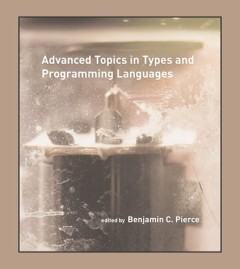
Advanced topics in types and programming languages
A thorough and accessible introduction to a range of key ideas in type systems for programming language.The study of type systems for programming languages now touches many areas of computer science, from language design and implementation to software engineering, network security, databases, and analysis of concurrent and distributed systems. This book offers accessible introductions to key id…
- Edition
- -
- ISBN/ISSN
- 9780262281591
- Collation
- 1 online resource (xiii, 574 pages) :illustrations
- Series Title
- -
- Call Number
- -
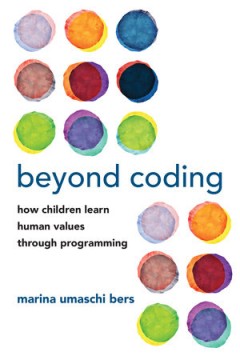
Beyond coding :how children learn human values through programming
"Bers argues that coding should be taught in early childhood and beyond STEM fields, where it is currently isolated from ethical, cultural, and language skills"--OCLC-licensed vendor bibliographic record.
- Edition
- -
- ISBN/ISSN
- 0262368544
- Collation
- 1 online resource.
- Series Title
- -
- Call Number
- -
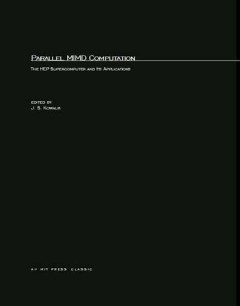
Parallel MIMD computation :the HEP supercomputer and its applications
Experts in high-speed computation agree that the rapidly growing demand for more powerful computers can only be met by a radical change in computer architecture, a change from a single serial processor to an aggregation of many processors working in parallel. At present, our knowledge about multi-processor architectures, concurrent programming or parallel algorithms is very limited. This book d…
- Edition
- -
- ISBN/ISSN
- 9780262256537
- Collation
- 1 online resource (411 pages) :illustrations.
- Series Title
- -
- Call Number
- -
Artifacts :an archaeologist's year in Silicon Valley
Silicon Valley, a small place with few identifiable geologic or geographic features, has achieved a mythical reputation in a very short time. The modern material culture of the Valley may be driven by technology, but it also encompasses architecture, transportation, food, clothing, entertainment, intercultural exchanges, and rituals.Combining a reporter's instinct for a good interview with trad…
- Edition
- -
- ISBN/ISSN
- 9780262272674
- Collation
- 1 online resource (xlix, 246 pages) :illustrations, map
- Series Title
- -
- Call Number
- -
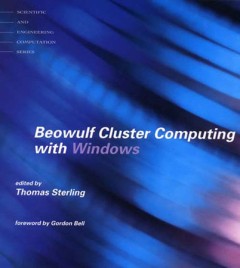
Beowulf cluster computing with Windows
Beowulf clusters, which exploit mass-market PC hardware and software in conjunction with cost-effective commercial network technology, are becoming the platform for many scientific, engineering, and commercial applications. With growing popularity has come growing complexity. Addressing that complexity, Beowulf Cluster Computing with Linux and Beowulf Cluster Computing with Windows provide syst…
- Edition
- -
- ISBN/ISSN
- 9780262286787
- Collation
- 1 online resource (xxxiii, 445 pages) :illustrations.
- Series Title
- -
- Call Number
- -
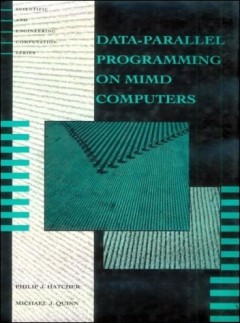
Data-parallel programming on MIMD computers
Data-Parallel Programming demonstrates that architecture-independent parallel programming is possible by describing in detail how programs written in a high-level SIMD programming language may be compiled and efficiently executed-on both shared-memory multiprocessors and distributed-memory multicomputers.MIMD computers are notoriously difficult to program. Data-Parallel Programming demonstrates…
- Edition
- -
- ISBN/ISSN
- 9780262288484
- Collation
- 1 online resource (xiv, 231 pages) :illustrations.
- Series Title
- -
- Call Number
- -

Beyond the desktop metaphor :designing integrated digital work environments
Leading developers and researchers report on what the next generation of digital work environments may look like, analyzing the theory and practice of designing "out of the box" to facilitate multitasking, collaboration, and multiple technologies.OCLC-licensed vendor bibliographic record.
- Edition
- -
- ISBN/ISSN
- 9780262256483
- Collation
- 1 online resource (vi, 360 pages) :illustrations
- Series Title
- -
- Call Number
- -
 Computer Science, Information & General Works
Computer Science, Information & General Works  Philosophy & Psychology
Philosophy & Psychology  Religion
Religion  Social Sciences
Social Sciences  Language
Language  Pure Science
Pure Science  Applied Sciences
Applied Sciences  Art & Recreation
Art & Recreation  Literature
Literature  History & Geography
History & Geography